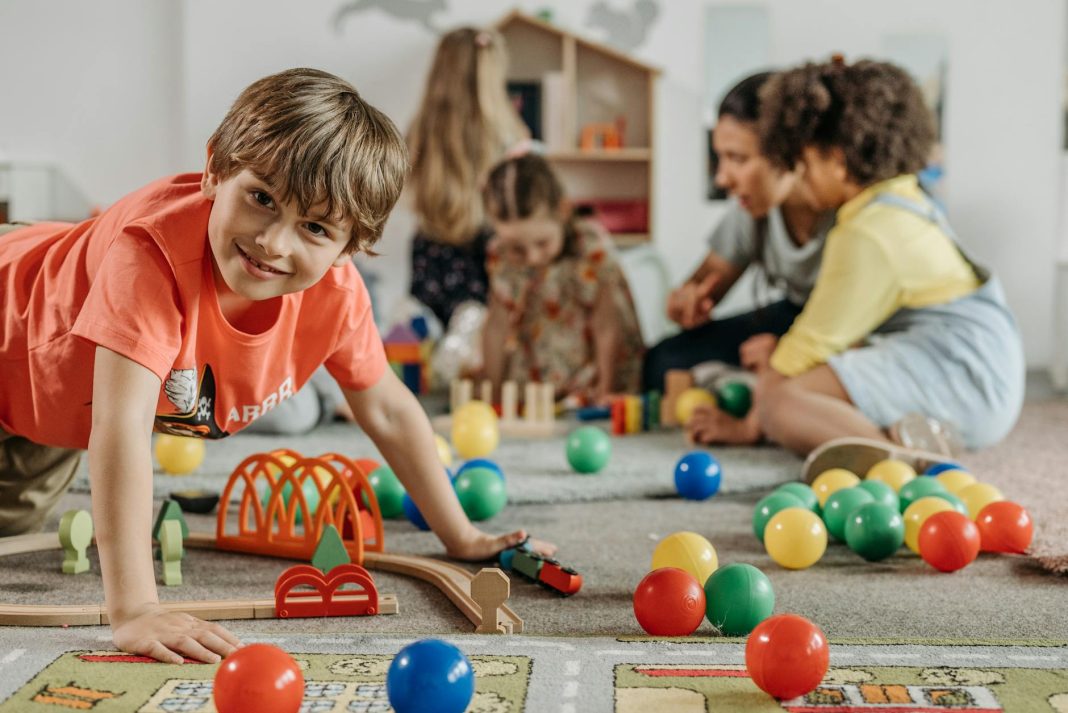Así que tienes un niño pequeño. Enhorabuena. También has entrado en un mundo de rabietas épicas, elecciones de comida cuestionables y un suministro aparentemente interminable de "noes". No te preocupes, no estás solo. La infancia es un viaje alocado, pero con un poco de comprensión y mucha paciencia, puedes sortearlo con la cordura (casi) intacta.
El tango de las rabietas: Comprender y gestionar las rabietas
Admitámoslo: las rabietas son el superpoder de los niños pequeños. Son una forma perfectamente normal (aunque increíblemente frustrante) de que los pequeños expresen sus grandes emociones. Antes de echar mano del chocolate, entiende *por qué* tu pequeño está estallando. El hambre, el cansancio, la frustración o simplemente el agobio pueden desencadenar una crisis.
Aquí tienes tu kit de supervivencia para rabietas:
- Mantén la calma: Es más fácil decirlo que hacerlo, ¿verdad? Pero tu actitud tranquila puede ayudar a calmar la situación. Respirar hondo te ayudará mucho.
- Reconoce sus sentimientos: "Veo que estás muy disgustado". Esto valida sus sentimientos sin estar necesariamente de acuerdo con su comportamiento.
- Ofrecer comodidad: Un abrazo (si lo aceptan) o un espacio tranquilo pueden ayudarles a regular sus emociones.
- Ignorar (con seguridad): Si el comportamiento no es peligroso, a veces ignorar la rabieta es la estrategia más eficaz. Aprenderán que con las rabietas no consiguen lo que quieren.
- Medidas preventivas: Reconoce los primeros signos de frustración e intenta abordarlos antes de que se conviertan en una rabieta en toda regla. Por ejemplo, ofreciéndole un tentempié, un cambio de actividad o un abrazo.
Disciplina: Guiar, no castigar
A esta edad, la disciplina no consiste en castigar, sino en orientar. Los niños pequeños aún están aprendiendo las normas y los límites. La coherencia es la clave. Establece expectativas claras y utiliza el refuerzo positivo para fomentar el buen comportamiento. El soborno es tentador, pero no enseña responsabilidad.
Estrategias disciplinarias eficaces: El niño próspero: Guía práctica para niños de dos y tres años
- Refuerzo positivo: Celebra el buen comportamiento Un simple "¡Qué bien has recogido tus juguetes!" es de gran ayuda.
- Tiempos muertos (de la forma correcta): Si necesitas un momento para que todo el mundo se calme, un breve tiempo fuera en un espacio designado -no una forma de castigo- puede ayudar. Asegúrate de que sea un lugar tranquilo y seguro.
- Redirección: Si tu hijo se mete en líos, redirige su atención hacia una actividad más apropiada.
- Consecuencias naturales: Deja que experimenten las consecuencias de sus actos (dentro de lo razonable, claro). Si tiran el juguete, puede que lo guarden durante un tiempo.
- Evita los castigos físicos: Nunca está bien pegar, abofetear o dañar físicamente a tu hijo. Las estrategias positivas son mucho más eficaces a largo plazo.
Aventuras de aprendizaje: Hacerlo divertido
Los niños pequeños son esponjas que absorben información como locos. El aprendizaje debe ser divertido y atractivo. Céntrate en el aprendizaje basado en el juego. Leer libros, cantar canciones, jugar con bloques y explorar la naturaleza son formas fantásticas de fomentar su desarrollo.
Actividades de aprendizaje que funcionan:
- Lectura: Establezca una rutina de cuentos antes de acostarse. Señala los dibujos, haz sonidos divertidos y participa en la historia.
- Juego sensorial: Ofrézcales oportunidades para explorar diferentes texturas, olores y sonidos.
- Expresión creativa: Dibujar, pintar y jugar con plastilina fomenta la creatividad y la autoexpresión.
- Juego al aire libre: Correr, saltar y explorar la naturaleza ayuda a desarrollar la motricidad gruesa y la creatividad.
- Rompecabezas y juegos sencillos: Desarrollan la capacidad de resolver problemas y la coordinación mano-ojo.
Apoyar la independencia: Pequeños pasos, grandes logros
Los niños pequeños ansían ser independientes. En esta etapa quieren hacerlo *todo* ellos solos, lo que a menudo provoca más desorden. Es fundamental apoyar su creciente autonomía y, al mismo tiempo, garantizar su seguridad.
Formas de fomentar la independencia:
- Dales opciones: En lugar de preguntar: "¿Quieres ponerte la camisa azul o la roja?". Ofrezca: "¿Quieres ponerte primero los zapatos o los calcetines?".
- Deja que te ayuden con las tareas domésticas: Las tareas apropiadas para su edad son muy útiles, como poner la mesa o guardar sus juguetes.
- Fomentar las habilidades de autoayuda: Deja que intente vestirse solo, lavarse los dientes o ir al baño (con supervisión y mucha paciencia).
- Proporcionar herramientas adecuadas a la edad: Escobas pequeñas, tazas y cubiertos del tamaño de un niño pequeño, todo ello les ayuda a sentirse más capaces.
- Celebre sus éxitos: Reconozca y elogie sus intentos, aunque el resultado no sea perfecto.
La infancia es difícil, desordenada y a veces agotadora, pero también increíblemente gratificante. Acepta el caos, celebra las pequeñas victorias y recuerda que esta fase es temporal. ¡Tú puedes!

